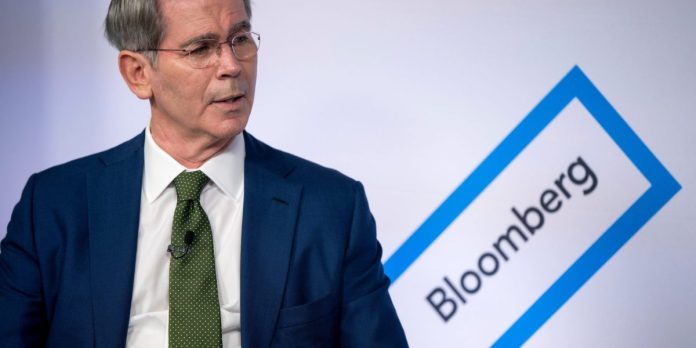Before he was chosen to be president-elect Donald Trump’s Treasury secretary, and before he founded his hedge fund, Scott Bessent worked at Soros Fund Management, founded by prolific Democratic Party donor and billionaire George Soros.
In 1992, Bessent helped Soros pull off the firm’s greatest trade: shorting the British pound.
The British government was part of the European Union at the time and its central bank—the Bank of England—had committed to keeping the value of the pound within a strict range alongside other European currencies, in particular the German Deutschmark. The policy framework was known as the “European Exchange Rate Mechanism” (ERM).
Soros and Bessent thought that because the UK economy was relatively weak, the pound was therefore overvalued, and the UK government would not be able to commit the billions needed to buy up the pound and keep it above the price it had committed to. Their massive short bet implied they believed the price of the pound would inevitably fall.
They were right. In September of that year, currency traders began selling pounds faster than the Bank of England could buy them, and the pound crashed. The UK was forced to abandon the ERM. The event became known as “Black Wednesday.”
Their short bet made them a fortune, more than $1 billion in profits. And it turned Soros into a legend, “the man who broke the Bank of England.”
Bessent left Soros some years later, but boomeranged back for another stint, this time as chief investment officer between 2011 and 2015; during that time, Bessent successfully bet against the Japanese Yen, according to the Wall Street Journal. But then he left again to start Key Square, a hedge fund he founded and still presides over as chief executive. Bessent did so with the help of Soros, who gave Bessent $2 billion to launch the fund. They only spoke a few times after—and a couple years after loaning him the money, Soros took it back, according to the New York Times, which cited people familiar with the matter.
Not much is known about their personal relationship. Bessent supposedly clashed with Soros, per the New York Times, and when Bessent left for the final time it was because he’d become frustrated working under Soros and his son.
Soros became a boogeyman for Republicans after he set up a philanthropic network, The Open Society Foundations. Thus far Soros’s foundations have spent nearly $23 billion on various liberal causes pushing peace, justice, climate change, and transparent democracy. He has also funded Democratic political candidates in the US, including some elected prosecutors.
Some of Soros’s money found its way to a campaign group called Color of Change, and that group donated to the election campaign of Manhattan District Attorney Alvin Bragg. It was Bragg who succeeded in prosecuting Trump on 34 counts of falsifying business records relating to various payments made to keep private negative information that might have affected the 2016 presidential election, which Trump won.
Unsurprisingly, Trump accused Bragg of being “handpicked and funded” by Soros.
When Trump announced he’d chosen Bessent to lead the Treasury department, there was no mention of Soros, or his ties to the financier—only that “Bessent has been involved in some of the largest and most profitable trades in Hedge Fund History, including shorting the British pound and the Japanese yen,” the president-elect wrote.
Markets cheered Trump’s Bessent pick.
Nonetheless, Bessent’s arrival at the Treasury is interesting because of his history. The Wall Street Journal earlier reported that opponents of Bessent regularly reminded Trump that he used to work for Soros. He wasn’t Elon Musk’s preferred pick, either. The world’s richest man, who has Trump’s ear after serving as his surrogate and creating a political action committee that spent $200 million on his re-election—pushed for Cantor Fitzgerald CEO Howard Lutnick. (Lutnick was later nominated for commerce secretary).
As Fortune previously reported, data from the Federal Election Commission shows Bessent gave $500,000 to the Trump 47 Committee and other joint fundraising accounts; and $750,000 to the Make America Great Again super PAC. There were other contributions, too, including $413,000 to various Republican National Committee and related accounts, and donations to individual candidates.
Loyalty matters to Trump. Bessent is “a big cheerleader for the Trump agenda” and “a longtime friend of Vice President-elect JD Vance,” according to NPR’s chief economics correspondent, who also noted that “he does have a sort of distinguished silver-haired gravitas that Trump often looks for.”
The Trump-Vance transition team and Key Square did not immediately respond to Fortune’s request for comment.


